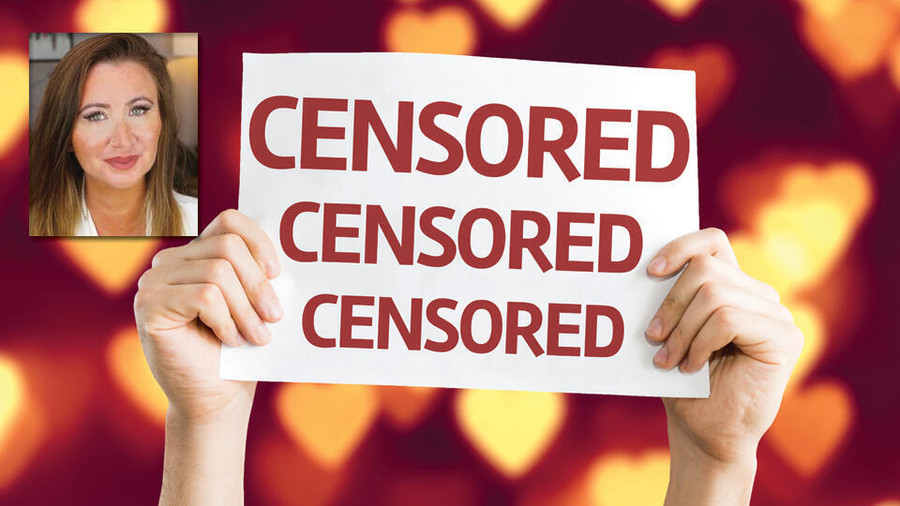In 1964, a cinema owner was prosecuted for obscenity for showing Louis Malle’s “The Lovers.” The case became sensationalized news and went all the way to the Supreme Court. This led to Justice Potter Stewart nebulously defining “hard-core pornography” by originating the infamous phrase “I know it when I see it.” The Supreme Court exonerated the cinema owner and ruled that the film was not obscene — and therefore constitutionally protected. But ever since, that incredibly vague and subjective definition has relegated the entire sex industry to punitive advertising restrictions that harm our bottom line.
Censorship of sex toy ads is an ongoing issue for our industry. Social media ads for sex toys routinely get blanket rejections, closing off huge revenue streams to us and seriously affecting our profit ceiling. It’s not the government making these decisions, either. It’s media executives exercising an overabundance of caution around products they don’t understand. Considering the misinformation they let through on a daily basis, I would argue that these are exactly the wrong people to police morality for consumers.
Yet even in 2023, there’s still a huge gap when it comes to talking about pleasure as its own reward.
It’s not only Facebook and Instagram that cut us off from advertising in the rich space of social media; it’s the real world as well. In 2015, the Metropolitan Transportation Authority of New York City rejected a subway ad campaign by sex toy maker Dame, which was founded by an MIT scientist, as well as ads for period pants by Thinx, which dared to use the word “period.” Those decisions were not only prudish but also blatantly sexist, since the MTA was perfectly happy to accept ads for erectile dysfunction products like Roman and Hims, which used phallic images of eggplants and cacti as visual metaphors for penises. So, what have we learned? When penis owners can’t achieve orgasm, it’s a medical issue — but when women seek pleasure or simply menstruate, it’s obscene.
More recently, a Lovehoney billboard was taken down for depicting Prince Harry with a ball gag in his mouth. Though alluding very specifically, and cleverly, to his oversharing in his recent memoir, it was deemed too suggestive for its location.
Is it possible to change perceptions of sex toys?
Throughout the 20th century, vibrators were advertised as having medical benefits, and today they are considered a “must have” part of your daily wellness routine. Plus, in recent years the trend of sex toys being endorsed by celebrities and advertised as part of a healthy well-being regime has brought vibrators and clitoral stimulators into the mainstream. So yes, it’s possible!
Yet even in 2023, there’s still a huge gap when it comes to talking about pleasure as its own reward. If we talk about pleasure as health, we can just about get away with it — though considering how difficult media gatekeepers make it for us to utter even the mildest of innuendos or show an image displaying even an inch of skin, it’s hard to imagine any advertisement for a sex toy passing the gauntlet of arbitrary and often sexist standards. This despite the fact that such toys promise orgasms for vulva owners to help combat depression and menstrual aches, boost heart health and the immune system, and aid recovery from sexual abuse — to name just a few health benefits.
Based on my research into masturbation habits, 58% of people are pleasuring themselves at least once per week and half use a sex toy every time with a partner. Not being able to discuss this is a problem. If pleasure and sex toys are so good for our health, we shouldn’t have to use health or stealth or puns to advertise them.
What can we do as an industry to help ourselves?
Many sex toy makers have tried to activate change, with varying degrees of success. Dame won its lawsuit against the MTA in 2019, and was able to advertise. Sex toy startup Biird started a push-back campaign on advertising standards, while Australian brand Normal is all about loopholes, like misspelling vibrator as “vbirator” and blurring out suggestive imagery.
But simply circumventing restrictive rules doesn’t achieve the goal. We need to lobby and convince the social media giants to rewrite their standards and policies. For the sake of all of our pleasure and health, their standards committees need to recognize nuance and allow the promotion of sexual wellness products and advice to adults, just as alcohol brands can target specific age groups without putting children in danger of seeing something they shouldn’t. Otherwise we will be stuck always having to work within their arbitrarily draconian bounds.
Finding the sex toy you’re looking for, without judgment or impediment, should be an option for every adult. We’ll never stop working to make that a reality for our customers.
Julia Margo is the co-founder and COO of sex toy company Hot Octopuss, which in 2013 created the world’s first “Guybrator."








